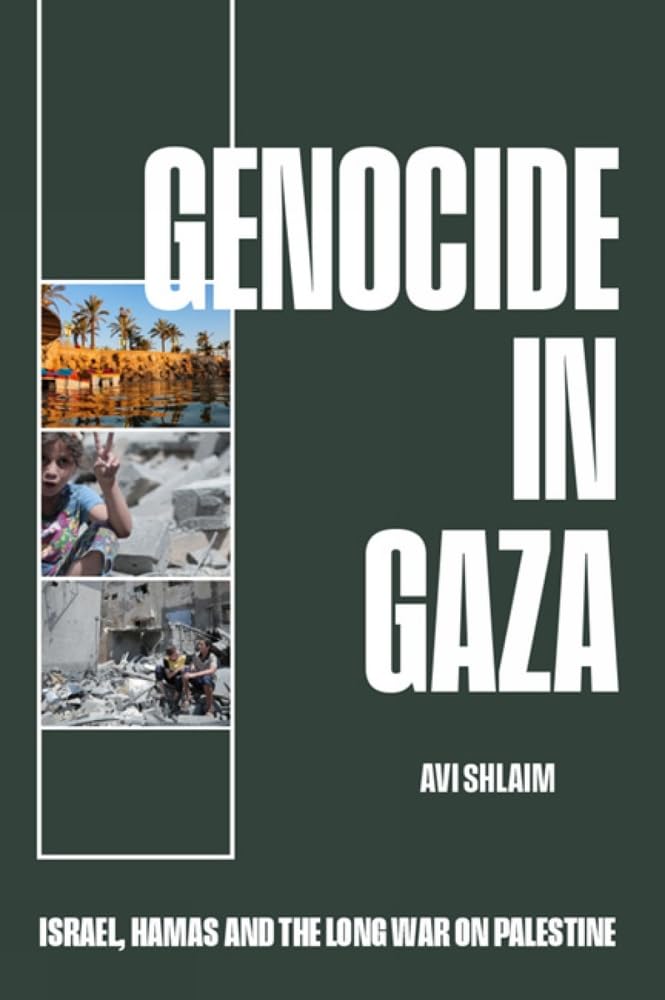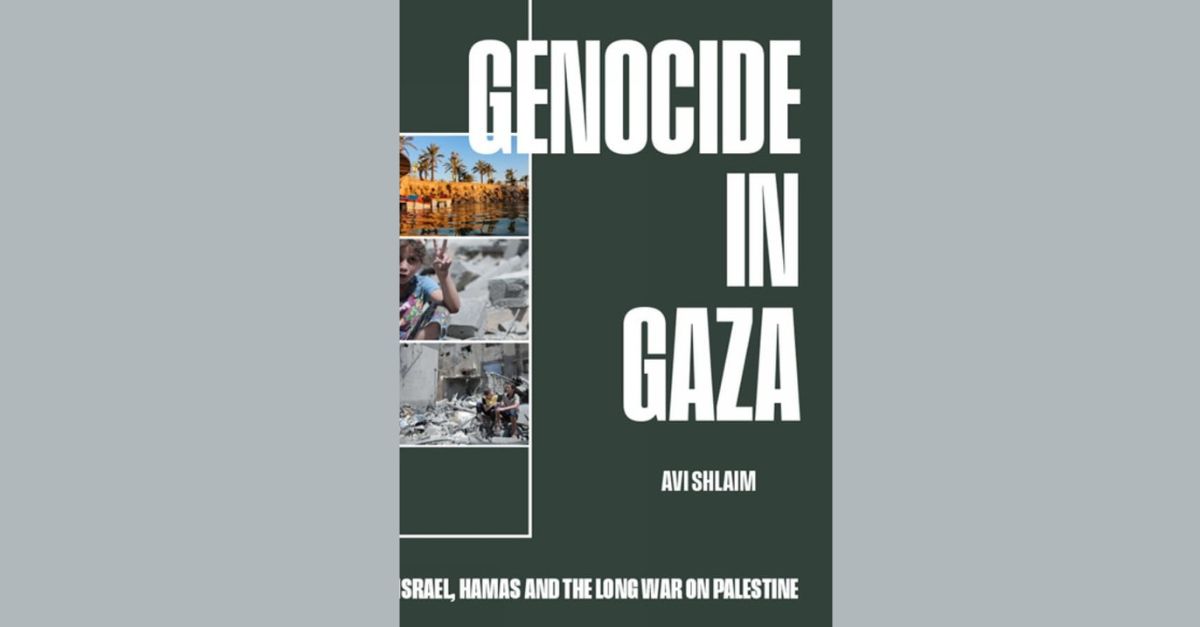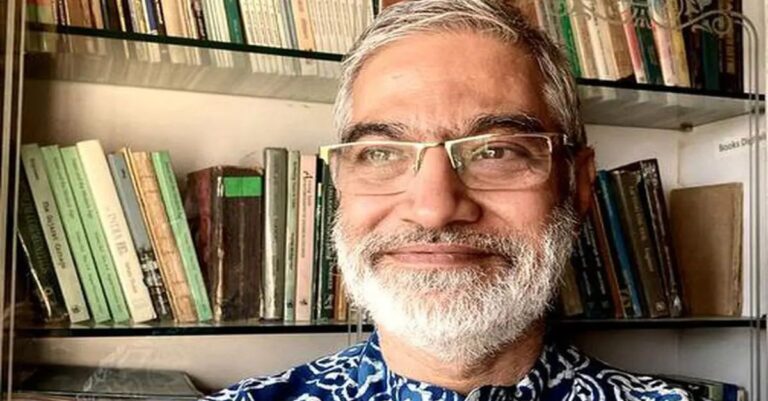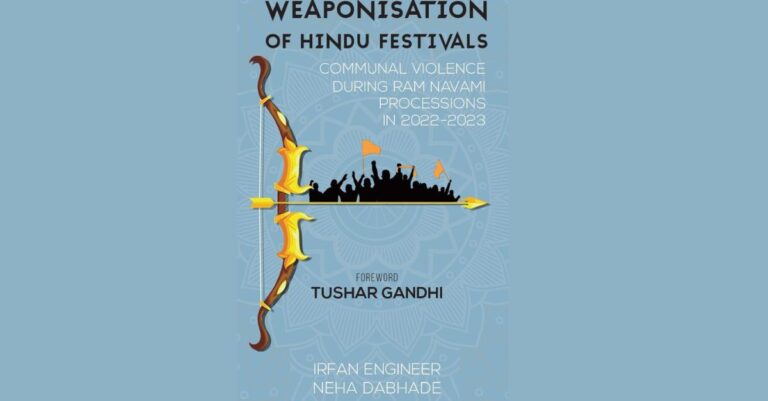Professor Avi Shlaim’s Genocide in Gaza: Israel, Hamas, and the Long War on Palestine (Irish Pages Press, 2024), is a book that hits hard with its take on the Israel-Palestine conflict. It’s a slim but powerful collection of essays, about 200 pages. Shlaim, an Oxford historian and a key figure among Israel’s “New Historians,” argues that what’s happening in Gaza isn’t just a war but the climax of a long, deliberate campaign rooted in Zionist settler-colonialism.

He’s not new to controversy— born in Baghdad, raised in Israel, he turned away from Zionism after digging into archives that exposed its colonial underbelly, a journey he traces in his 2023 memoir Three Worlds: Memoir of an Arab-Jew. Here, he doubles down, using terms like “apartheid,” “fascism,” and “genocide” with sharp precision, backed by Noam Chomsky’s cover blurb calling it a raw look at settler-colonialism’s worst impulses.
The book pulls together essays written between 2021 and 2024, some for The Guardian or London Review of Books, others for legal briefs, like a 2019 submission to the International Criminal Court. There’s a bit of overlap, but Shlaim says it’s intentional— each piece builds on the last to show how Gaza’s crisis keeps escalating. Francesca Albanese, the UN Special Rapporteur, kicks things off with a foreword tying Israel’s blockade to a colonial logic of erasing Palestinians. It wraps up with a coda from Blinne Ní Ghrálaigh KC, who laid out South Africa’s genocide case against Israel at the ICJ.
You’ll also find haunting visuals: Peter Rhoades’s drawings of Gaza’s ruins from 2008–09 and Feda Shtia’s photos of children, putting faces to the numbers. One downside? No index, which can make navigating tricky.
Shlaim’s core argument is that Gaza’s suffering—especially after the 7 October 2023 Hamas attack and Israel’s brutal response (Operation Swords of Iron)— is no accident. He sees Zionism as a settler-colonial project, echoing scholar Patrick Wolfe’s idea that “invasion is a structure, not an event.” Gaza’s blockade since 2007, the repeated bombings Israel calls “mowing the lawn,” and the staggering toll— over 40,000 deaths by mid-2024, mostly women and children— aren’t just security measures but steps toward elimination.
He quotes Israeli officials’ chilling calls to “burn Gaza” or “erase” it, listed in a six-page appendix co-written with Jamie Stern-Weiner, to argue genocidal intent under the UN Genocide Convention. Terms like “WCNSF” (Wounded Child, No Surviving Family) from Gaza’s hospitals hit like a gut punch.
He doesn’t shy away from Hamas either. Shlaim calls its 7 October attack a desperate act of resistance, not blind fanaticism, rooted in 56 years of occupation and Israel’s refusal to honor Hamas’s 2006 election win. He’s clear: this isn’t about excusing violence but understanding why it happened.
He also points fingers at the West, especially the U.S., for arming Israel and blocking UN resolutions, which he says fuels the carnage while isolating Israel globally. People share his lines about Israel’s “deeply racist society” and how sympathy for Palestinians is growing as the world wakes up to the occupation’s toll.
Shlaim dreams of a one-state solution— a single democratic state from the Jordan River to the Mediterranean— dismissing two-state hopes as dead amid West Bank settlements.
The book has been called a “Times Literary Supplement Book of the Year 2024,” with Jacobin and New Lines Magazine praising its scholarship and moral clarity. Some pro-Israel critics slam it as one-sided, but Shlaim’s evidence— UN reports, ICJ rulings, official statements— makes it hard to dismiss.
Reading this feels like sitting with a historian who’s seen too much to stay neutral. It’s not just a book— it’s a call to face uncomfortable truths. If you want more, check Shlaim’s The Iron Wall for historical context or Albanese’s UN reports for the legal side.
Shlaim’s final words linger: “We’re witnessing the last gasp of Israeli violence.” It’s a heavy read, but one that demands attention.




